‘It’s Time to Finally Discover the Historical Truth’
It is clear that there has been renewed interest in Belgian Congo since the end of the 20th century. A young, progressive generation is genuinely interested in Belgium’s colonial past, mainly because they realise that the origin of today’s racism can often be found in this period.
For several decades Belgium’s colonial past has triggered debates and polemics that sometimes literally take over the public arena. Often, they are directed at the presence of monuments from the colonial period, which more or less explicitly defend Belgian activities in Congo. The examples are legion, and I do not want to sum them all up here. In this short essay I set out a few general considerations in an attempt to cast some light on the origin and reach of the malaise surrounding Belgium’s colonial past.
The general debate surrounding colonisation
Obviously, Belgium is not the only country that had a colony, so the controversy surrounding its colonial past has two different dimensions. The first concerns colonisation in general, the second the specifically Belgian characteristics.
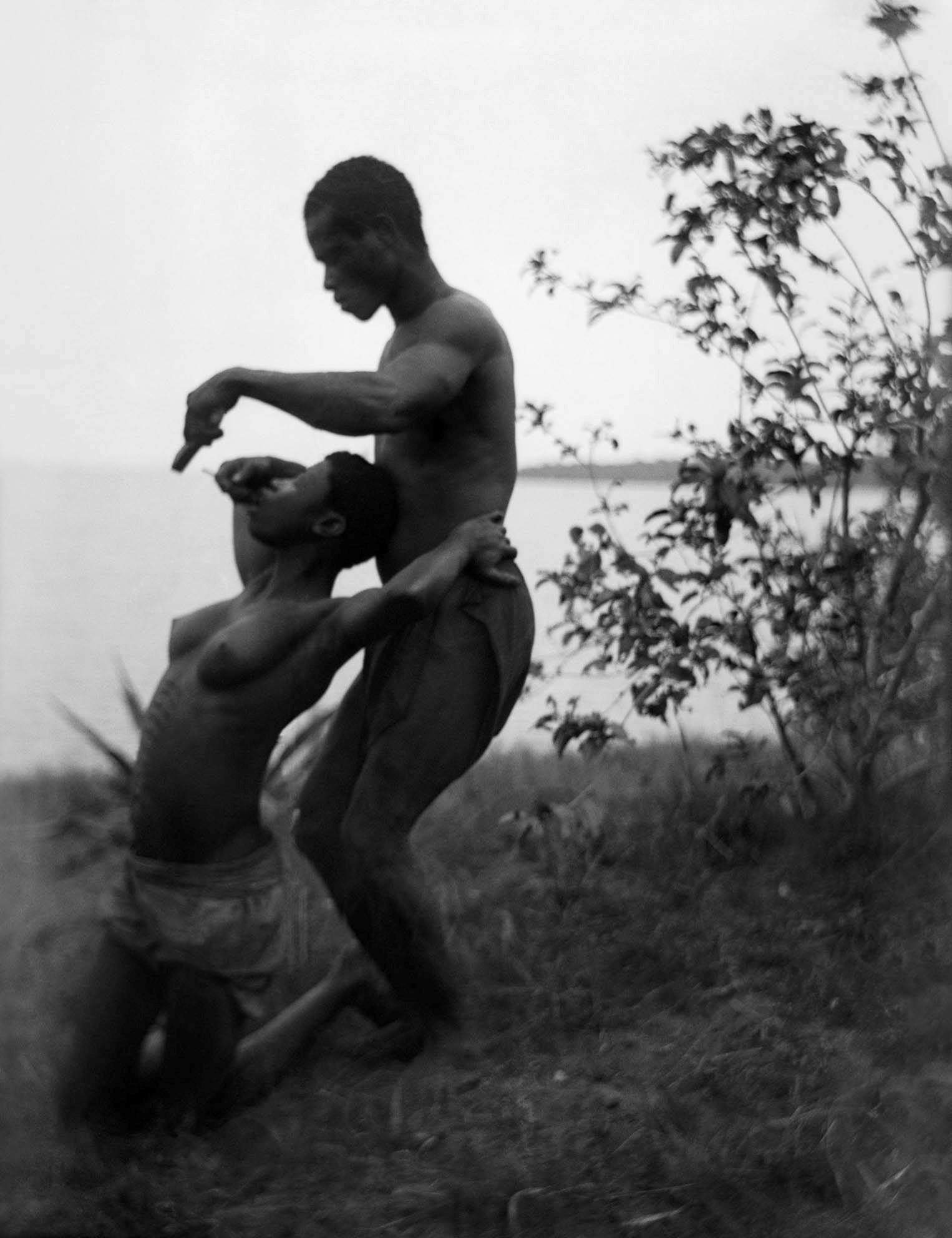 Pulling teeth, Lake Leopold III, collection RMCA, Tervuren
Pulling teeth, Lake Leopold III, collection RMCA, Tervuren© Vanden Broeck
Let us examine the general aspects first. After an initial expansion in the 16th century, colonialisation flared up again in the 19th century, when the colonial superpowers began presenting their occupation of lands overseas as benevolent. In their eyes, colonisation was synonymous with spreading ‘civilisation’ and ‘progress’ throughout the world. Mines and plantations, schools and training centres, dispensaries and hospitals, roads and railways, churches and chapels replaced barbarity, slavery, misery, famine, ignorance and superstition, all to improve the lives of the indigenous populations. That is more or less the image that official channels propagated in the colonial period.
Several decades later, historical research literally shot that anodyne view down in flames. To put it bluntly, we should regard colonisation primarily as abuse of a particular society by another society. It was essentially an exercise in violence and oppression, based, after all, on the domination of a large indigenous population by a limited group of foreigners. The former were doggedly forced into submission. In the case of the colonies, this included implementation of an active ‘population policy’, because the Europeans were irrefutably weaker in numerical terms. Moreover, colonisation also involved the expropriation of all the local resources by the new masters. Profits were partially withdrawn from the regions where they originated. The whole situation led to innumerable breaches of human rights, mostly on the basis of racial prejudice.
There is no denying the fact that there is no such thing as ‘humane colonisation’
Obviously, we should qualify this rather sombre picture to some extent. Many Europeans embarked on the colonial adventure out of idealism. Likewise, some solidly humanitarian campaigns were carried out as part of colonisation. And finally, not all colonial periods were as violent as others. Nonetheless, there is no denying the fact that there is no such thing as ‘humane colonisation’, because it has invariably been about institutionalised, violent inequality between different groups of people. Moreover, it is impossible to separate all these different aspects or to take stock of ‘good’ and ‘bad’ facets and to decide that colonisation was ‘generally speaking positive’ or ‘generally speaking negative’. To elaborate on the image I used above, claiming that colonisation had its ‘good sides’ is like saying that rape can, after all, result in a beautiful baby, to explain away a brutal attack that has led to the birth of a child.
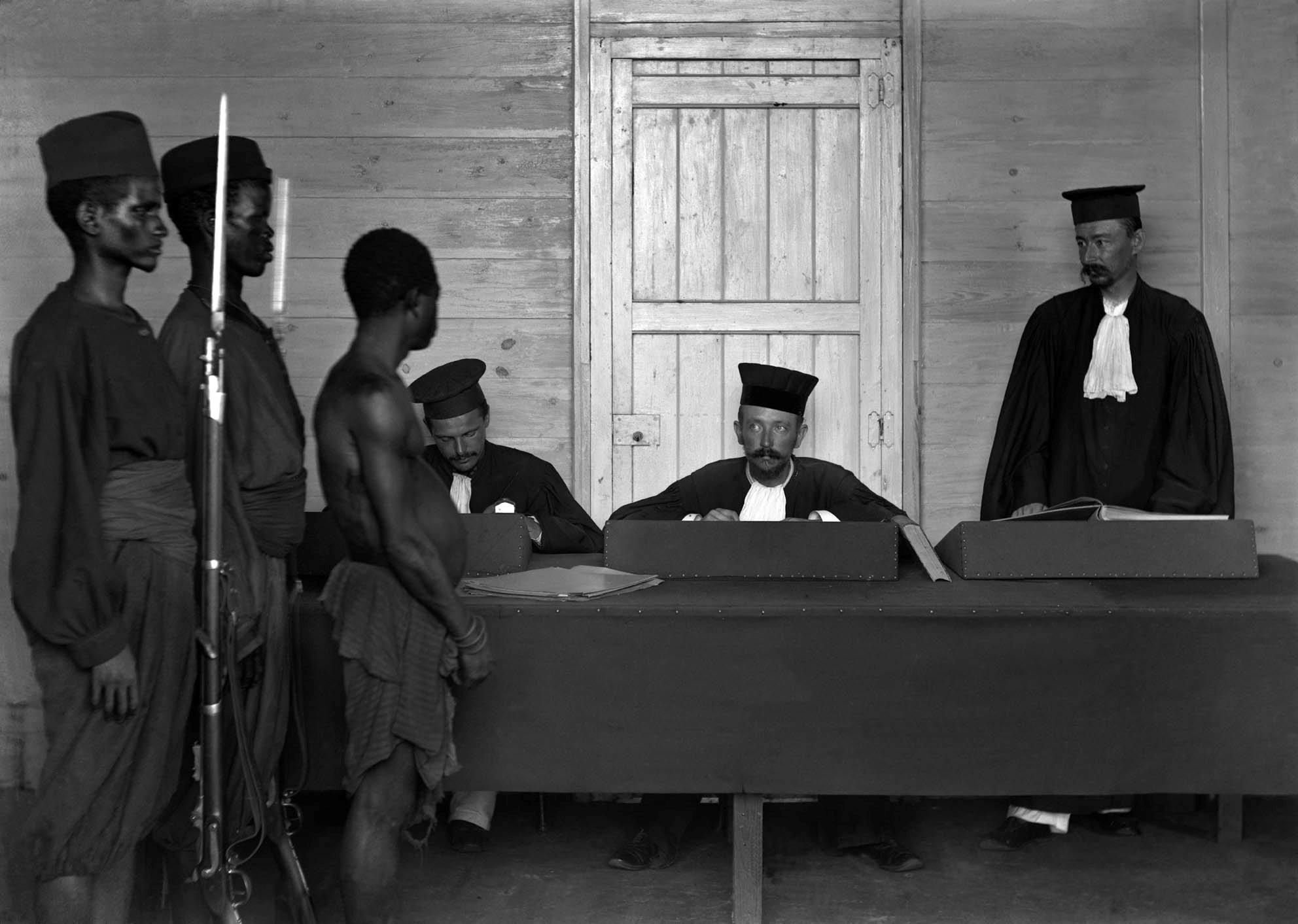 Court session in Boma in 1897, collection RMCA, Tervuren
Court session in Boma in 1897, collection RMCA, Tervuren© F. Michel
Then, of course, there is the question of whether the child produced by such violence is so beautiful anyway. Yes, roads were built and canals were dug. Certain forms of precolonial violence were stopped and ‘economic growth’ was generated. And yes, generalised schooling was introduced, diseases were fought, and vaccination programmes were launched. But by destructuring colonised societies, colonisation created new problems as well. This does not mean, however, that part of the indigenous, non-European populations should be absolved of all responsibility. Obviously, a colonial regime could never have got off the ground without the cooperation of certain indigenous inhabitants and groups. Indeed, the same is true for the postcolonial fiascos. To a large extent they are due to the crimes of a particular indigenous class which, not infrequently supported by the former colonisers, got control of the political and economic power.
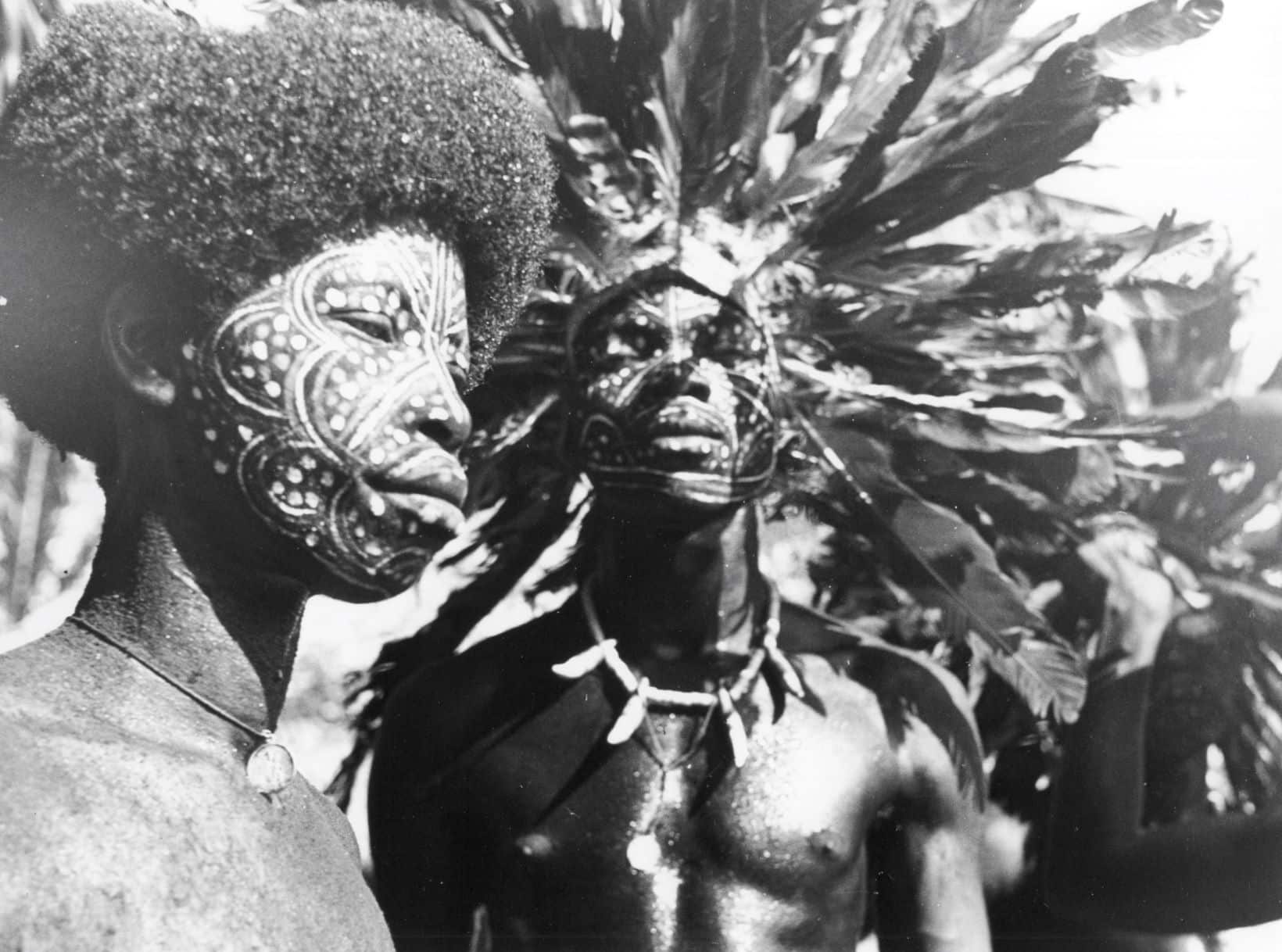 Still image of "Fêtes chez les Hamba", a film by Luc De Heusch made in 1955
Still image of "Fêtes chez les Hamba", a film by Luc De Heusch made in 1955© Cinematek, Brussels
Gradually this realisation is beginning to dawn on the political world. In recent years most former colonial powers have offered their ‘excuses’ to the countries they colonised or have expressed their regret about some aspect or other of their colonial past. Nonetheless, Belgium has not (as yet?) gone down that road. Why? Perhaps because of the second, specifically Belgian aspect, which I mentioned at the start of my text.
The typically Belgian view of the colonial past
The view of Belgian society and the government regarding the colonial past is determined by a combination of all sorts of different factors. The malaise dates from the early days of King Leopold II’s rule in Congo. Indeed, it did not take long before the violence against the indigenous population came to light via numerous testimonies. Massacres, rape, kidnapping, imprisonment, mutilation, corporal punishment, the destruction of villages and inhuman working conditions were a matter of course in Leopold’s Congo. The sovereign monarch and his employees were clearly aware of these violations, which by today’s standards would be branded as ‘crimes against humanity’ (1998 ruling by the International Criminal Court). The abuses and massacres were a structural consequence not only of a system that was dominated by the pursuit of maximum profit, but also of a primitive state apparatus in which cruel (white AND black) agents got free rein on the ground. Along with the spread of deadly diseases, mass migrations, agricultural disruption and the resulting negative impact on human reproduction, these acts of violence brought about a considerable reduction in the Congolese population during the period 1885-1920. Unfortunately, we cannot calculate the decline precisely, but the number is estimated to be between several hundred thousand and a couple of million people.
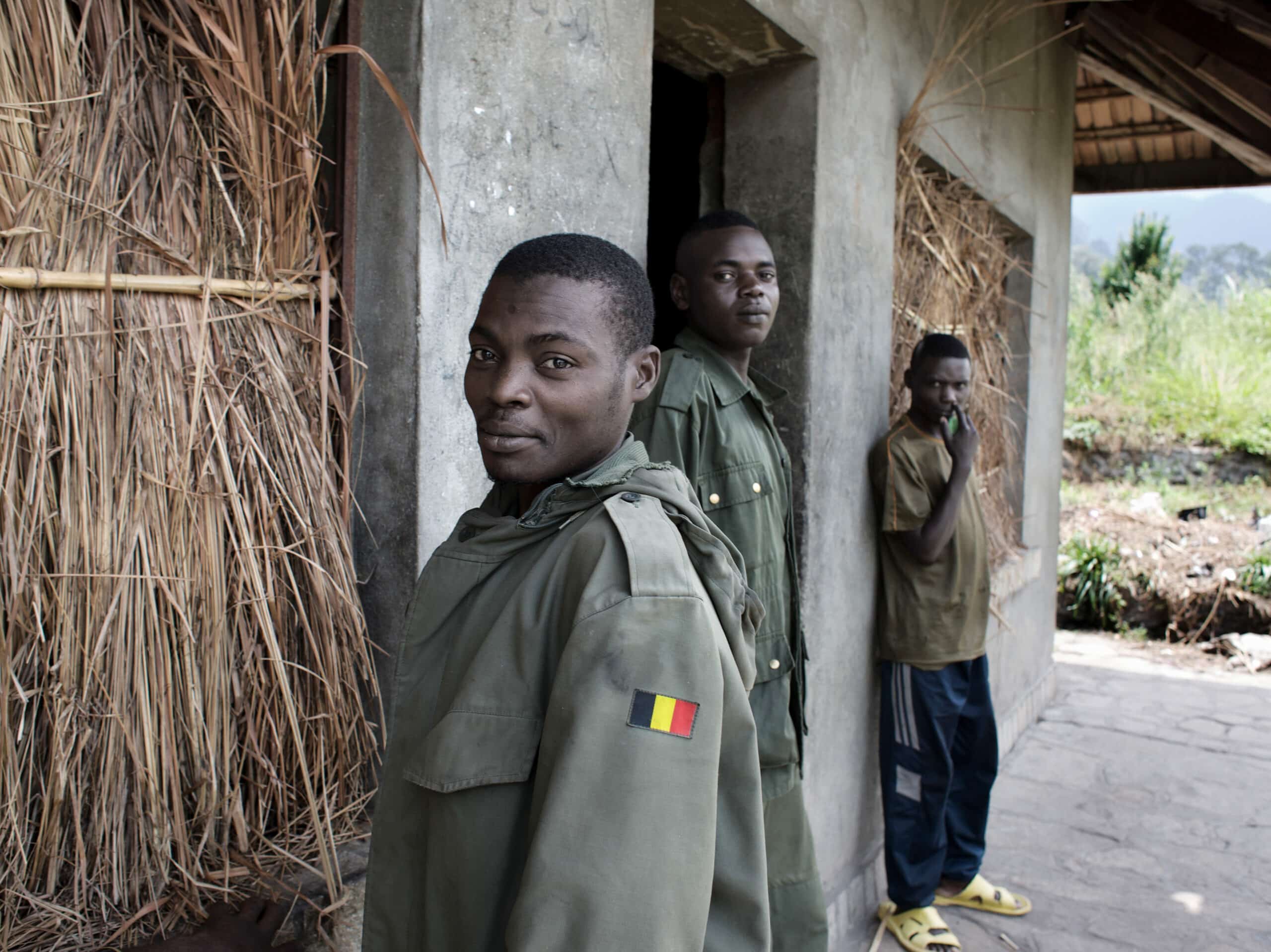 Ruwenzori Hotel in Mutwanga (North Kivu), 2008
Ruwenzori Hotel in Mutwanga (North Kivu), 2008© Carl De Keyzer
From the 1890s onwards, the situation in Congo and Leopold II’s policies came under heavy fire both in Belgium and abroad. However, the king and the other members of the government of the Congo Free State denied the accusations with all their might. Even after the Congo Free State was taken over by the Belgian government, in 1908, it continued to deny or minimise the crimes of the former regime. Although the ‘old guard’ knew very well what the situation actually was, a real personality cult was launched surrounding Leopold II. Indeed, as a young colonial power Belgium certainly felt threatened by criticism of its king’s rule. And, despite the fact that the new Belgian regime had put an end to the worst of the atrocities in the Congo Free State, the Belgian colonisation basically continued to be marked by institutionalised violence, forced labour, exploitation of the working population and racial discrimination, notwithstanding undeniable accomplishments in terms of education and health, and the fact that there was a clear improvement in the living standards of some of the Congolese population in the period 1945-1960.
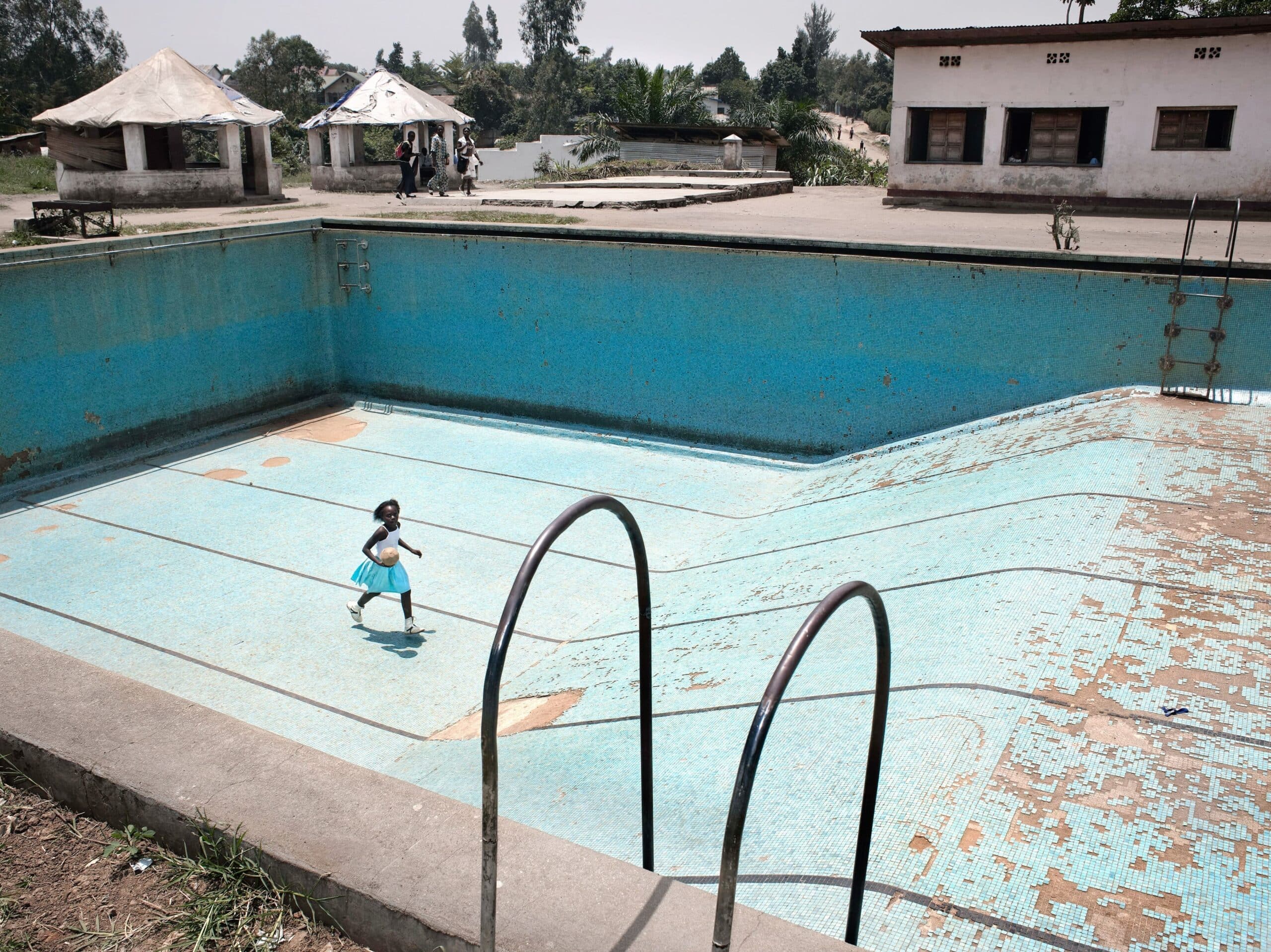 Bunia Sports Club (capital of Ituri province), 2008
Bunia Sports Club (capital of Ituri province), 2008© Carl De Keyzer
After the independence of Congo, in 1960, the old dismissive or minimising discourse about the atrocities under Leopold II was never explicitly repudiated. The personality cult surrounding the king, which branded the monarch a ‘genius’, ensured that he enjoyed exceptional popularity, especially in palace circles, just as the idealised image of Belgian Congo that was forged by the propaganda of the time continued to be cherished. The army, which had historically always sympathised with the royal household, adopted this attitude as well. Likewise, the same attitude reigned among a section of the diplomats, who continued for decades to deny everything on the international scene. And finally, a lot of former colonialists who had practised their professions competently and with dedication in the Congo during the 1950s, have also contributed towards a positive image of colonialism, which they continue to defend to this day. All of these factors explain the passive attitude of the authorities towards Belgium’s colonial past. The colonial clichés are, as it were, ingrained in our memories.
This lack of reaction has been strengthened by the fact that for a long time middleclass Belgian society barely exerted any counterweight. Most Belgians initially had little or no interest in the colony, because although many of their countrymen had personal or family links with Congo, for most of them it was a distant, barely known reality. After independence the psychological distance became even greater. Besides, anticolonialism had only played a limited role in pre-1960s Belgium. All these elements explain why there was little interest in the Belgian colonial past after 1960.
For a long time, historical research was also marked by the same lack of interest. It was only in the 1960s that a few (exceptional) historians like Jean Stengers and Jean-Luc Vellut became interested in the question. Although they certainly dotted their i’s and crossed their t’s, they did not get the public attention they deserved at the time. Moreover, the conditions for consulting the colonial archives were far from ideal. Although not all the documents from the period of Leopold II had disappeared, the king had nonetheless destroyed scores of dossiers concerning his rule in the Congo Free State in 1908. On the other hand, the documentation kept by the former Ministry of the Colonies after 1908 has survived intact and can be found in the archives of the Ministry of Foreign Affairs. It should be said that some records that were more than fifty years old were freely accessible. Academics who wanted to consult more recent records had to submit a request to an internal ‘diplomatic commission’ in the same ministry, which could grant authorisation. However, it was a very arbitrary procedure that often took many months, and since those responsible for the colonial archives had mostly grown up in an atmosphere of denial, they often harboured a deep distrust of researchers who, during the 1960s and 70s, threatened to undermine the anodyne view of colonisation and were therefore refused access to ‘sensitive’ documents. To make matters worse, the colonial archives were badly inventoried and the rare resources that made consultation of the dossiers possible were equally hard to access. If we add to that the very limited number of staff at the African archives, it will probably be more than clear how difficult it must have been to carry out research into Belgium’s colonial past before about 1990.
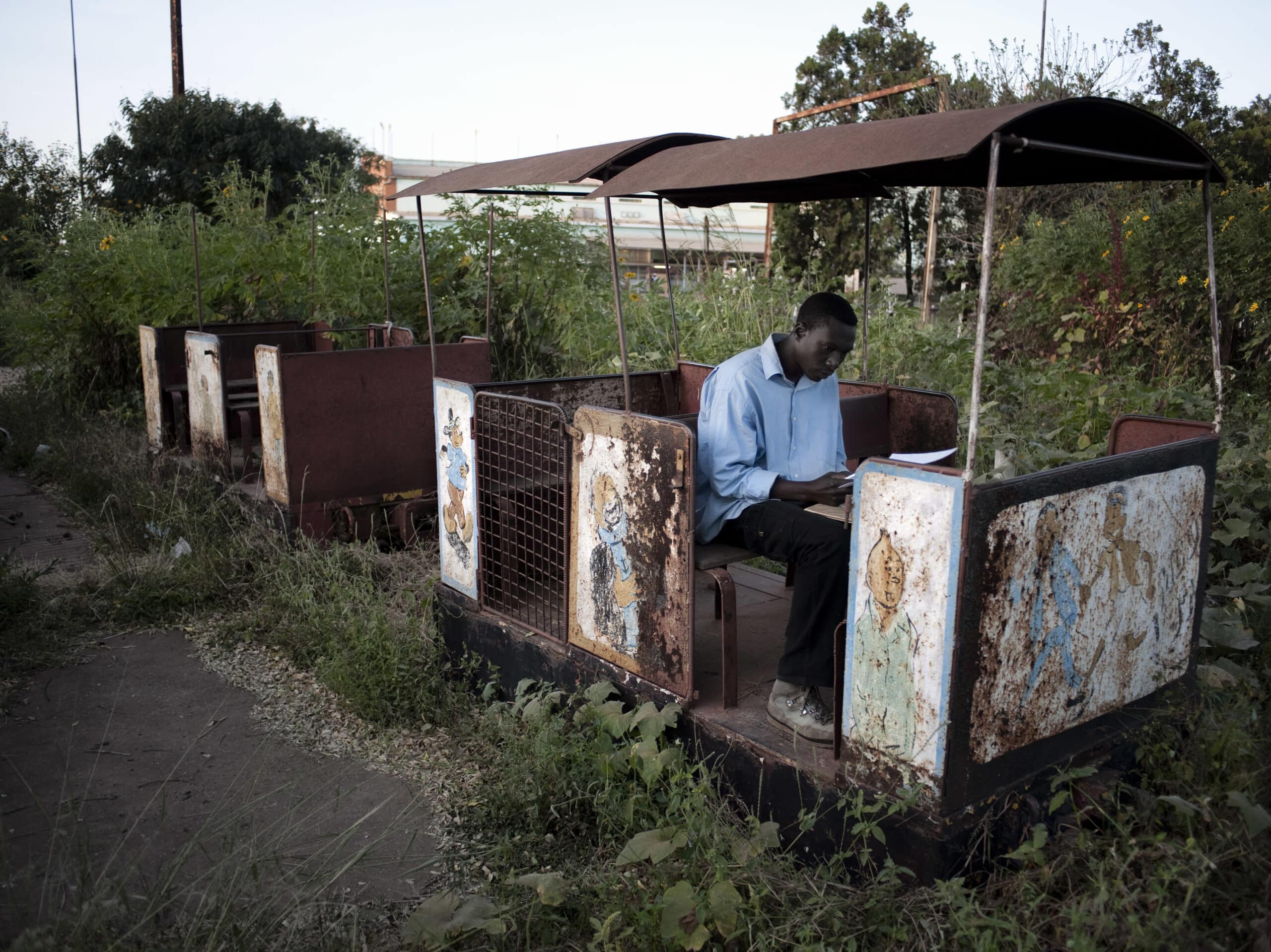 An abandoned theme park in Congo
An abandoned theme park in Congo© Carl De Keyzer
Towards the end of the 20th century we can see a reversal of the situation. A young, progressive generation, encouraged by the Congolese diaspora, amongst others, suddenly became interested in the Belgian Congo again. The increased interest was also linked to the realisation that the roots of today’s racism go back to the colonial period. In the 1980s a number of isolated researchers, particularly the former diplomat Jules Marchal and anthropologist Daniel Vangroenweghe, once again drew attention to the massacres carried out in Congo under Leopold II. To a large extent, the American Adam Hochschild based his book King Leopold’s Ghost (1998) on their research, in an effort to spread the accusations against Leopold II’s regime worldwide. Other media picked up the subject then too, so that it suddenly got attention everywhere. At the same time, Belgian sociologist Ludo de Witte’s book about the Belgian government’s role in the murder of Congolese Prime Minister Patrice Lumumba, in 1961, provoked an examination of the dramatic final phase of Belgian colonisation, too. I probably do not need to remind readers of the parliamentary committee of enquiry that studied the question in 2000-2001 to find out what the role of Belgian politicians actually was in this crime.
Then, in the same period, a young generation of historians began to be interested in the colonisation, too, and in the meantime they have published many articles about Belgian Congo. As a result, our knowledge concerning the former Belgian colony has increased hugely in the past twenty years. The archives have become much more accessible as well. The (ongoing) transfer of the Colonial Archives to the National Archives, where the documents are finally being systematically inventoried, will at last ensure optimal access to this immense legacy of papers.
Conclusion
Obviously, there are many questions about Belgian colonial history that still need answering. But there is now clarity about the fundamental nature of the phenomenon. Consequently, there is no need for further research to ‘finally discover the historical truth’ about colonialism. Our politicians can no longer use the gaps in current historical knowledge as an excuse to shirk their duty to publicly update their attitude towards the colonial past. The fact that, from now on, people can take particular standpoints on certain disputed questions (or can abstain from doing so) shows that our politics are based on moral foundations. In future this policy will ensure that text books and school programmes are updated too. It will also have a direct impact on foreign policy, the way our identity is represented and a lot of other issues that are at stake in our society. These reasons all make a public review of our perspective on the colonial past so important.












